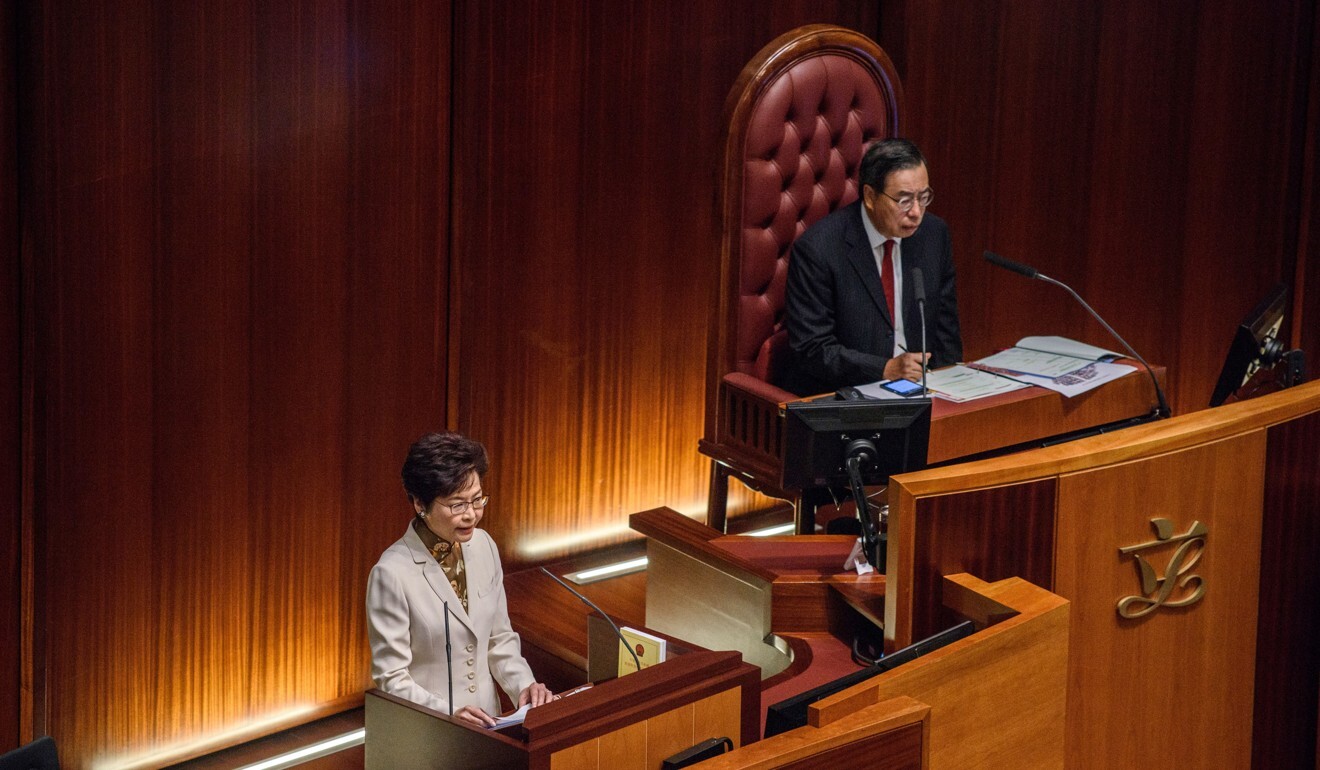
National security law: Hong Kong leader Carrie Lam to visit Beijing, opposition lawmaker banned from questioning legislation
- The chief executive, travelling with the city’s top legal and security officials, will reflect her views and public concerns about the new law
- In Hong Kong, Lam’s deputy sparked further controversy by getting the head of the city’s legislature to ban an opposition politician from asking about it
The announcement came as Lam’s deputy sparked further controversy by getting the head of the city’s legislature to ban an opposition lawmaker from asking about the new law, saying it was national-level legislation and therefore not the work of the city government.
What is Hong Kong’s national security law?
The controversial move marked the first time since the city’s return to Chinese sovereignty in 1997 that the Legislative Council had forbidden a lawmaker from raising a question with proper notice given.
The government announced on Tuesday that Lam would head to the capital the next day with Secretary for Justice Teresa Cheng Yeuk-wah, security minister John Lee Ka-chiu and police chief Chris Tang Ping-keung.
The central government “will listen” to Lam’s views over the legislation, the official statement said, but did not detail whom she was going to meet.

The security chief told the media he would tell Beijing that there were people both for and against the law, and reflect how law enforcement agencies operated under the common law system.
A mainland source familiar with Hong Kong affairs said the fact that Beijing had arranged Lam’s visit soon after the National People’s Congress (NPC) last Thursday endorsed a resolution for its standing committee to craft the law indicated the urgency of the matter.
“The central government won’t allow the [legislation] process to drag on for too long,” the source said, adding that Lam was expected to meet officials from the NPC.
A second mainland source said most of the law had already been drafted, and a new agency that might be set up in Hong Kong would have the power and equipment to handle “all threats to national security”, although local police would still have an important role to play.
A third source said NPC members were urged to submit their views on the national security law in the next two days.
A source close to the Hong Kong government said there was a “fair chance” the standing committee would endorse the legislation at its upcoming meeting scheduled for the end of this month.
There was further controversy as Legco president Andrew Leung Kwan-yuen, in a letter to all legislators on Monday night, banned Democratic Party chairman Wu Chi-wai from raising a question about the law at Wednesday’s full council meeting.
Wu had asked officials to explain what measures would be taken to protect Hong Kong residents’ rights and freedoms under the Basic Law, the city’s mini-constitution, after the national security legislation was implemented.
Leung, citing views from Chief Secretary Matthew Cheung Kin-chung, ruled that the matter was “not part of the Hong Kong’s government work” because issues of defence and foreign affairs were under the purview of the central government.

Cheung told the Legco president in writing that it would be premature to take Wu’s question as details of the bill were not available.
Wu said the ban on his question signified a “formal rejection” by the Hong Kong government of consultations with lawmakers and the public over the legislation.
The law aims to prevent, stop and punish secession, subversion of state power, terrorism and foreign interference in Hong Kong, but opposition politicians and critics warn it could be used to suppress dissent and erode freedoms.
What does Beijing’s national security law mean for Hong Kong?
Hong Kong’s leader earlier slammed the United States for “double standards” over its support for protests in the city despite the violence while cracking down on similar social unrest on home soil.
“There are riots in the US and we see how local governments reacted. And then in Hong Kong, when we had similar riots, we saw what position they adopted,” Lam said. “They value very much their own national security, but are biased in viewing ours.”
Lam appealed to the public to understand Beijing’s reasons behind imposing the new law, but said she was unable to comment on its specific legal principles and content pending a detailed draft.
Additional reporting by Kimmy Chung



